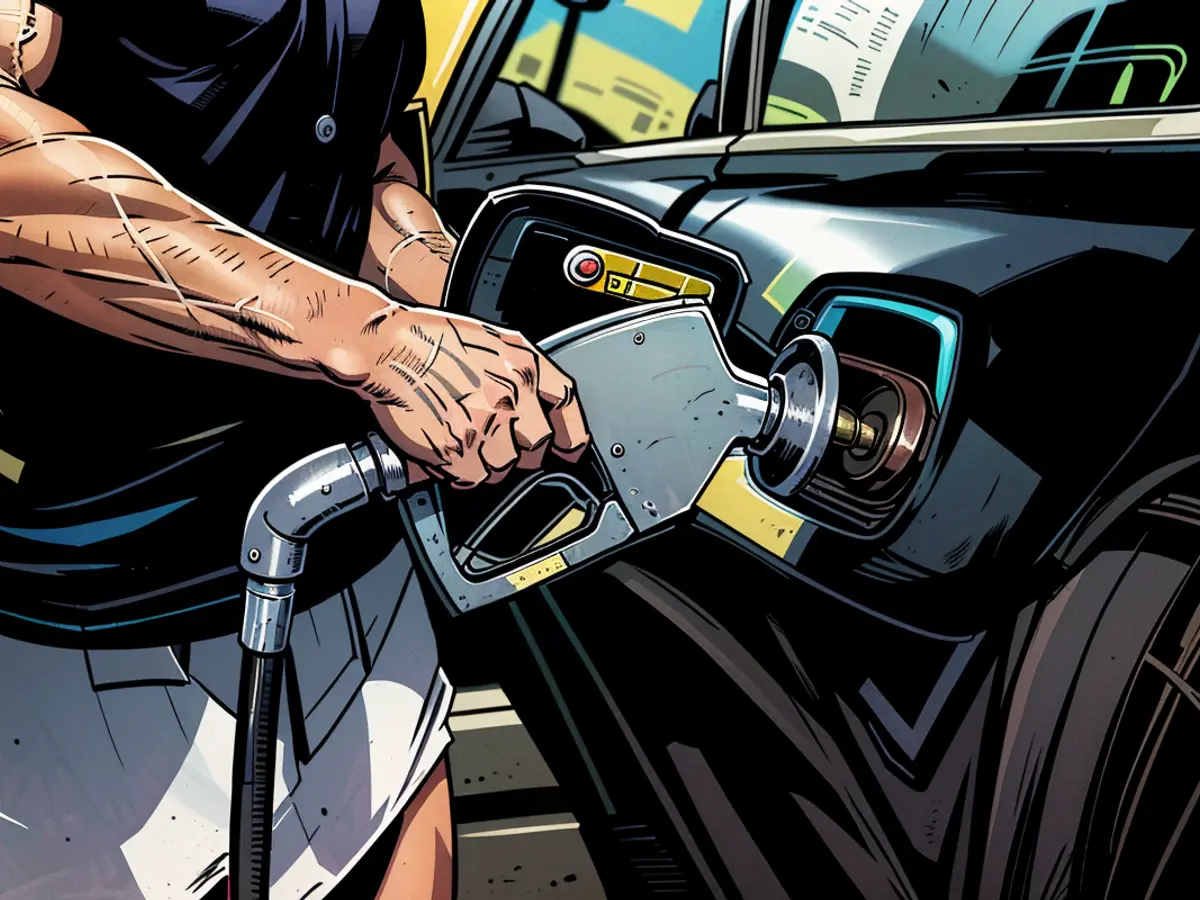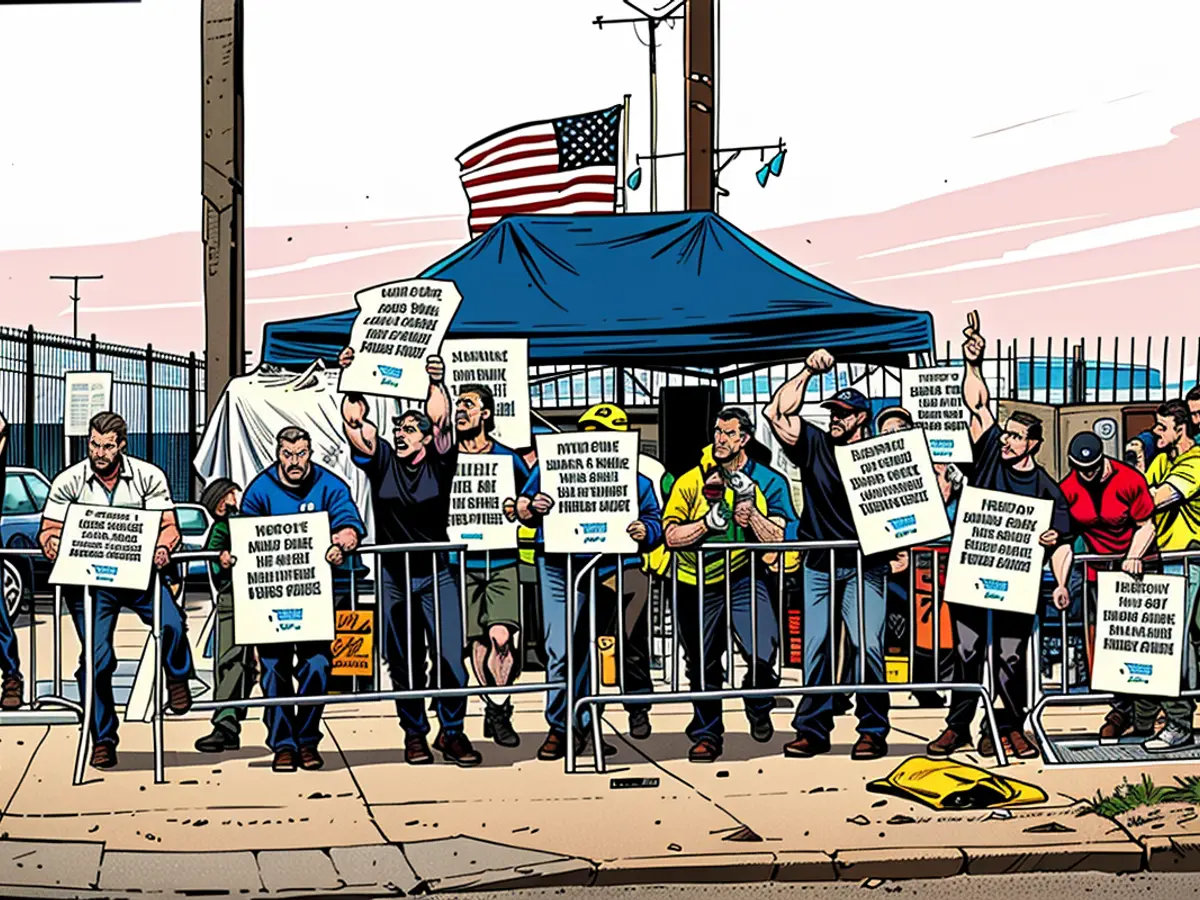A tri-headed economic beast advances into the presidential election campaign
The ongoing developments aren't doing any favors to the U.S. economy, which, despite its robustness in various aspects, is currently in a tricky situation.
These developments serve as political weapons for Republicans aiming to portray the vice president as a part of an ineffective administration that's left American consumers struggling with high prices (ignoring the uninterrupted job growth and consumer spending for over three years).
Former President Trump hasn't missed the opportunity to shove the blame on his opponent, hoping that the electorate will overlook the disorder of his own presidency. "The world's going up in flames and spiraling out of control," he stated Tuesday.
Representatives for Harris, who interacted with first responders in Georgia on Wednesday, remained silent on the matter.
It's important to note that no singular individual or administration is solely responsible for these events. However, in this highly contested election, where both Republican and Democratic candidates are virtually even, and the electorate is focused on the economy's wellbeing, the visuals of this week's news appear more unfavorable for the party in power.
Issues with prices
The decline in U.S. gas prices should have been a breath of fresh air for Harris, given that consumers tend to associate the pump price with the party in the White House.
Prices were expected to dip below $3 on average before October ends. However, the sudden escalation of fighting in the Middle East on Tuesday and Wednesday sent global oil prices skyrocketing, potentially leading to higher prices for American motorists.
Further price hikes may occur if the East Coast port strike, which began on Tuesday, prolongs beyond a week.
This labor disruption is obstructing the delivery of a wide range of goods at almost all East Coast cargo ports, from Maine to Texas. According to some estimates, the strike could sap the economy of $5 billion a week. The longer it persists, the more likely it is for consumers to feel the impact through grocery store shortages and inflated prices.
In a letter to the White House last week, business leaders highlighted the need to prevent a strike or any other disruptions, stating, "The last thing the supply chain, companies, and employees need is a strike or other disruptions."
Job market unease
Meanwhile, disasters are piling up in the Southeast, leaving at least 180 fatalities in their wake since Hurricane Helene hit the region last week. Roads remain closed, and power outages are prevalent across the Carolinas, Florida, and Tennessee as of Wednesday. While it's challenging to quantify the economic impact of this calamity at this point, Moody's anticipates the damages could reach as high as $34 billion.
The devastation brought by the hurricane will result in temporary job losses and furloughs as businesses reorganize. These layoffs, in conjunction with similar job losses caused by the Boeing strike and the port strike, could result in a dismal October jobs report, scheduled to be released on the first Friday of November – just four days before the election.
Consider this: For the past four years, the U.S. has experienced an impressive job growth rate, recovering from the short-lived pandemic recession and granting the Biden administration a commendable record to rally around their pro-labor message.
However, the simultaneous strikes and Hurricane Helene could jeopardize this streak.
"If the Boeing strike and the port strike continue through the second week of October, the October job growth could be negative," stated analysts at Oxford Economics on Wednesday.
Negative job growth has been a rarity in this country since December 2020, during the final month of the Trump administration. While any October job losses would likely be transient, the timing of the report is particularly unfortunate for the Harris campaign.
The business leaders expressed concern about the potential impact of the East Coast port strike on prices and the economy, urging the White House to prevent any disruptions.
Despite the impressive job growth rate over the past four years, the simultaneous strikes and Hurricane Helene could pose a threat to maintaining a positive job report before the election.









